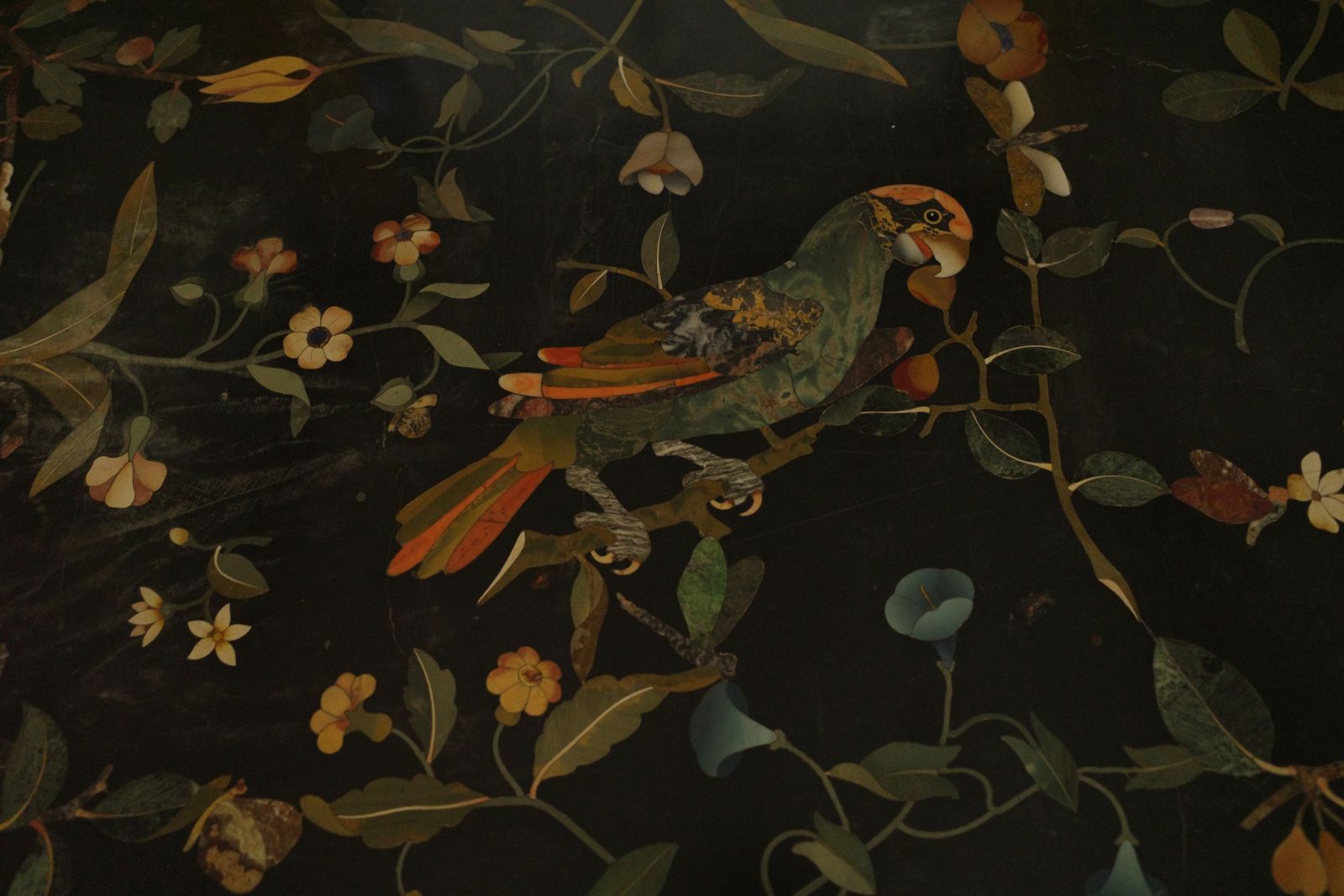Research
The Haptic Interface: Artisanal Ecologies of Pietre Dure Tables in Early Modern Italy, 1550s-1660s
Wenyi Qian

Florentine workshop based possibly on Jacopo Ligozzi's design, Inlaid tabletop with parrot and vegetal motifs (detail), 1620s, semi-precious hardstones on black marble ground, 85 x 116.5 cm, Palazzo Pitti, Florence.
Drawing eclectically on material culture studies, history of science and technology and the environmental humanities, this thesis narrates a cultural history of hardstone inlaid tables in sixteenth- and seventeenth-century Italy. It examines this novel genre of elite artefact as an interface between material techniques of diverse artistic media, between disparate epistemic cultures, between aesthetic experience of material surfaces ranging from painting, textile, gem facets to the architectonic, and between far-flung geographies and dissimilar social strata of artisanal labour. By haptic, I foreground the experiential, epistemological, and political aspects of making as distinct from and entangled with elite forms of knowledge-making from statecraft, environmental management to natural philosophy. By designating these objects as an “interface”, I highlight their particular spatial agency as circumambulatory and kinesthetic suture between multiple subjectivities and corporealities.
Each chapter singles out one technical and material trait of the craft technique—from emery-aided abrasion as a form of transcultural and eco-material labour in the Mediterranean to ornamental drawings, design transfer and the workshop economy of paper, from lithic translucency and refraction as mediating between precious media and monumental architecture to the haptic assemblage of mineral, vegetal and animal motifs—to delineate these objects as borne out of the confluence of craft skills, labour administration, environmental processes and diverse natural philosophical doctrines. Simultaneously zooming in on a workshop ecology of materials and conceptualizing the larger environment as epistemological substrate and material infrastructure for small-scale craftsmanship, the thesis advances a methodological experiment in thinking about early modern material culture ecologically.


